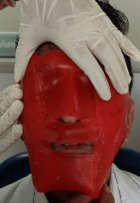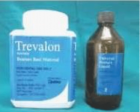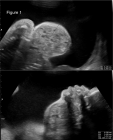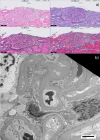Abstract
Research Article
Comparative Study of Cerebral Volumetric Variations in Patients with Schizophrenia with their Unaffected First-degree Relatives, using Magnetic Resonance Imaging Technique, a Case-control Study
Mahdiye Fanayi, Mohammad Ali Oghabian*, Hamid Reza Naghavi and Hassan Farrahi
Published: 03 January, 2024 | Volume 8 - Issue 1 | Pages: 001-007
Background and purpose: Schizophrenia (SZH) is a chronic mental disorder affecting the individuals` thoughts, perceptions, emotions, and behaviors. People with SZH may experience a wide range of positive, negative, and cognitive symptoms. Since there are no laboratory assays for definite SZH diagnosis, the authors aimed to identify the cerebral volumetric variations in SZH patients with the most prevalent positive symptoms as a diagnostic tool.
This study selected 15 SZH patients displaying the most prevalent positive symptoms based on the Diagnostic and Statistical Manual of Mental Disorders (DSM-5) criteria. Assessment tools included the Mini-Mental State Examination (MMSE) for cognitive impairment, the Positive and Negative Syndrome Scale (PANSS) for symptom evaluation, and the Wechsler Intelligence Scale (WIS) for intelligence assessment. Additionally, 15 Healthy Controls (HC) without cerebral pathologies were recruited. T1w MRI images underwent analysis using Freesurfer software. Data analysis employed Mann-Whitney U and χ² tests, considering p < 0.05 as significant.
Results: SZH and HC groups showed no significant differences in age and gender. However, significant
(p < 0.05) alterations in Gray Matter (GM) volume were observed in SZH patients compared to HC. In the right hemisphere, several regions exhibited volume reduction, including the Fusiform sulcus, Rostral middle frontal gyrus, isthmus cingulate, Frontal pole, Middle temporal gyrus, Lateral occipital gyrus, and Inferior Parietal gyrus. Notably, the Precentral sulcus and Postcentral gyrus demonstrated volume acceleration. Similarly, in the left hemisphere, various regions showed volume reduction while the Paracentral gyrus indicated volume acceleration, all significant (p < 0.05).
Conclusion: SZH patients display significant volumetric brain changes, indicating potential for future diagnostic procedures in SZH.
Read Full Article HTML DOI: 10.29328/journal.jnnd.1001088 Cite this Article Read Full Article PDF
Keywords:
Schizophrenia; Most prevalent positive symptom; MRI; Unaffected first-degree relatives; Volumetry; Case-control
References
- Preface to DSM-5. In Diagnostic and Statistical Manual of Mental Disorders. https://doi.org/10.1176/appi.books.9780890425787.x00b_preface_to_DSM-5
- American Psychiatric Association. Diagnostic and statistical manual of mental disorders (5th ed.). 2013.
- Alnæs D, Kaufmann T, van der Meer D, Córdova-Palomera A, Rokicki J, Moberget T, Bettella F, Agartz I, Barch DM, Bertolino A, Brandt CL, Cervenka S, Djurovic S, Doan NT, Eisenacher S, Fatouros-Bergman H, Flyckt L, Di Giorgio A, Haatveit B, Jönsson EG, Kirsch P, Lund MJ, Meyer-Lindenberg A, Pergola G, Schwarz E, Smeland OB, Quarto T, Zink M, Andreassen OA, Westlye LT; Karolinska Schizophrenia Project Consortium. Brain Heterogeneity in Schizophrenia and Its Association With Polygenic Risk. JAMA Psychiatry. 2019 Jul 1;76(7):739-748. doi: 10.1001/jamapsychiatry.2019.0257. Erratum in: JAMA Psychiatry. 2019 Jul 17;: PMID: 30969333; PMCID: PMC6583664.
- Sutterland AL, Dieleman J, Storosum JG, Voordouw BA, Kroon J, Veldhuis J, Denys DA, de Haan L, Sturkenboom MC. Annual incidence rate of schizophrenia and schizophrenia spectrum disorders in a longitudinal population-based cohort study. Soc Psychiatry Psychiatr Epidemiol. 2013 Sep;48(9):1357-65. doi: 10.1007/s00127-013-0651-9. Epub 2013 Jan 23. PMID: 23340770.
- Editors BJSVAS. Kaplan & amp; Sadock's comprehensive textbook of psychiatry. Seventh edition. Philadelphia: Lippincott Williams & Wilkins. 2000; https://search.library.wisc.edu/catalog/999917262602121
- Keshavan MS, Collin G, Guimond S, Kelly S, Prasad KM, Lizano P. Neuroimaging in Schizophrenia. Neuroimaging Clin N Am. 2020 Feb;30(1):73-83. doi: 10.1016/j.nic.2019.09.007. Epub 2019 Nov 11. PMID: 31759574; PMCID: PMC7724147.
- Venkatasubramanian G. Schizophrenia is a disorder of aberrant neurodevelopment: A synthesis of evidence from clinical and structural, functional and neurochemical brain imaging studies. Indian J Psychiatry. 2007 Oct;49(4):244-9. doi: 10.4103/0019-5545.37663. PMID: 20680135; PMCID: PMC2910346.
- Karlsgodt KH, Sun D, Jimenez AM, Lutkenhoff ES, Willhite R, van Erp TG, Cannon TD. Developmental disruptions in neural connectivity in the pathophysiology of schizophrenia. Dev Psychopathol. 2008 Fall;20(4):1297-327. doi: 10.1017/S095457940800062X. PMID: 18838043.
- Haijma SV, Van Haren N, Cahn W, Koolschijn PC, Hulshoff Pol HE, Kahn RS. Brain volumes in schizophrenia: a meta-analysis in over 18 000 subjects. Schizophr Bull. 2013 Sep;39(5):1129-38. doi: 10.1093/schbul/sbs118. Epub 2012 Oct 5. PMID: 23042112; PMCID: PMC3756785.
- Mubarak A, MSc A. Volumetric Brain MRI Changes in Schizophrenic Patients. The Medical Journal of Cairo University. 2019; 87:1539-1545. https://doi.org/10.21608/mjcu.2019.53573
- Cobia D, Rich C, Smith MJ, Mamah D, Csernansky JG, Wang L. Basal ganglia shape features differentiate schizoaffective disorder from schizophrenia. Psychiatry Res Neuroimaging. 2021 Nov 30;317:111352. doi: 10.1016/j.pscychresns.2021.111352. Epub 2021 Aug 5. PMID: 34399283; PMCID: PMC8545830.
- Filippi M, Canu E, Gasparotti R, Agosta F, Valsecchi P, Lodoli G, Galluzzo A, Comi G, Sacchetti E. Patterns of brain structural changes in first-contact, antipsychotic drug-naive patients with schizophrenia. AJNR Am J Neuroradiol. 2014 Jan;35(1):30-7. doi: 10.3174/ajnr.A3583. Epub 2013 Jun 6. PMID: 23744689; PMCID: PMC7966495.
- Madre M, Canales-Rodríguez EJ, Fuentes-Claramonte P, Alonso-Lana S, Salgado-Pineda P, Guerrero-Pedraza A, Moro N, Bosque C, Gomar JJ, Ortíz-Gil J, Goikolea JM, Bonnin CM, Vieta E, Sarró S, Maristany T, McKenna PJ, Salvador R, Pomarol-Clotet E. Structural abnormality in schizophrenia versus bipolar disorder: A whole brain cortical thickness, surface area, volume and gyrification analyses. Neuroimage Clin. 2020;25:102131. doi: 10.1016/j.nicl.2019.102131. Epub 2019 Dec 13. PMID: 31911343; PMCID: PMC6948361.
- Yasuda Y, Okada N, Nemoto K, Fukunaga M, Yamamori H, Ohi K, Koshiyama D, Kudo N, Shiino T, Morita S, Morita K, Azechi H, Fujimoto M, Miura K, Watanabe Y, Kasai K, Hashimoto R. Brain morphological and functional features in cognitive subgroups of schizophrenia. Psychiatry Clin Neurosci. 2020 Mar;74(3):191-203. doi: 10.1111/pcn.12963. Epub 2019 Dec 27. PMID: 31793131; PMCID: PMC7065166.
- Bakhshi K, Chance SA. The neuropathology of schizophrenia: A selective review of past studies and emerging themes in brain structure and cytoarchitecture. Neuroscience. 2015 Sep 10;303:82-102. doi: 10.1016/j.neuroscience.2015.06.028. Epub 2015 Jun 23. PMID: 26116523.
- Guo JY, Huhtaniska S, Miettunen J, Jääskeläinen E, Kiviniemi V, Nikkinen J, Moilanen J, Haapea M, Mäki P, Jones PB, Veijola J, Isohanni M, Murray GK. Longitudinal regional brain volume loss in schizophrenia: Relationship to antipsychotic medication and change in social function. Schizophr Res. 2015 Oct;168(1-2):297-304. doi: 10.1016/j.schres.2015.06.016. Epub 2015 Jul 16. PMID: 26189075; PMCID: PMC4604250.
- Kuo SS, Pogue-Geile MF. Variation in fourteen brain structure volumes in schizophrenia: A comprehensive meta-analysis of 246 studies. Neurosci Biobehav Rev. 2019 Mar;98:85-94. doi: 10.1016/j.neubiorev.2018.12.030. Epub 2019 Jan 4. PMID: 30615934; PMCID: PMC6401304.
- Ohi K, Nemoto K, Kataoka Y, Sugiyama S, Muto Y, Shioiri T, Kawasaki Y. Alterations in hippocampal subfield volumes among schizophrenia patients, their first-degree relatives and healthy subjects. Prog Neuropsychopharmacol Biol Psychiatry. 2021 Aug 30;110:110291. doi: 10.1016/j.pnpbp.2021.110291. Epub 2021 Mar 2. PMID: 33662534.
- Xiao Y, Zhang W, Lui S, Yao L, Gong Q. Similar and different gray matter deficits in schizophrenia patients and their unaffected biological relatives. Front Psychiatry. 2013 Nov 21;4:150. doi: 10.3389/fpsyt.2013.00150. PMID: 24319433; PMCID: PMC3836186.
- Cavelti M, Contin G, Beck EM, Kvrgic S, Kossowsky J, Stieglitz RD, Vauth R. Validation of the Illness Perception Questionnaire for Schizophrenia in a German-speaking sample of outpatients with chronic schizophrenia. Psychopathology. 2012;45(4):259-69. doi: 10.1159/000330262. Epub 2012 May 30. PMID: 22653383.
- Jia X, Wang Z, Huang F, Su C, Du W, Jiang H, Wang H, Wang J, Wang F, Su W, Xiao H, Wang Y, Zhang B. A comparison of the Mini-Mental State Examination (MMSE) with the Montreal Cognitive Assessment (MoCA) for mild cognitive impairment screening in Chinese middle-aged and older population: a cross-sectional study. BMC Psychiatry. 2021 Oct 4;21(1):485. doi: 10.1186/s12888-021-03495-6. PMID: 34607584; PMCID: PMC8489046.
- Takayanagi M, Kawasaki Y, Shinomiya M, Hiroshi H, Okada S, Ino T, Sakai K, Murakami K, Ishida R, Mizuno K, Niwa SI. Review of Cognitive Characteristics of Autism Spectrum Disorder Using Performance on Six Subtests on Four Versions of the Wechsler Intelligence Scale for Children. J Autism Dev Disord. 2022 Jan;52(1):240-253. doi: 10.1007/s10803-021-04932-x. Epub 2021 Mar 7. Erratum in: J Autism Dev Disord. 2021 Apr 23;: PMID: 33677730; PMCID: PMC8732936.
- Fischl B. FreeSurfer. Neuroimage. 2012 Aug 15;62(2):774-81. doi: 10.1016/j.neuroimage.2012.01.021. Epub 2012 Jan 10. PMID: 22248573; PMCID: PMC3685476.
- Mai JK, Paxinos G. The Human Nervous System. Elsevier Science. 2011. https://books.google.com/books?id=J4cDpsl2rrQC
- Pavlovic D, Pekic S, Stojanovic M, Popovic V. Traumatic brain injury: neuropathological, neurocognitive and neurobehavioral sequelae. Pituitary. 2019 Jun;22(3):270-282. doi: 10.1007/s11102-019-00957-9. PMID: 30929221.
- Kim H, Shon SH, Joo SW, Yoon W, Lee JH, Hur JW, Lee J. Gray Matter Microstructural Abnormalities and Working Memory Deficits in Individuals with Schizophrenia. Psychiatry Investig. 2019 Mar;16(3):234-243. doi: 10.30773/pi.2018.10.14.1. Epub 2019 Mar 21. PMID: 30934191; PMCID: PMC6444097.
- Bonnen T, Yamins DLK, Wagner AD. When the ventral visual stream is not enough: A deep learning account of medial temporal lobe involvement in perception. Neuron. 2021 Sep 1;109(17):2755-2766.e6. doi: 10.1016/j.neuron.2021.06.018. Epub 2021 Jul 14. PMID: 34265252.
- Kaur A, Basavanagowda DM, Rathod B, Mishra N, Fuad S, Nosher S, Alrashid ZA, Mohan D, Heindl SE. Structural and Functional Alterations of the Temporal lobe in Schizophrenia: A Literature Review. Cureus. 2020 Oct 26;12(10):e11177. doi: 10.7759/cureus.11177. PMID: 33262914; PMCID: PMC7689947.
- Schulz R, Woermann FG, Ebner A. When written words become moving pictures: complex visual hallucinations on stimulation of the lateral occipital lobe. Epilepsy Behav. 2007 Aug;11(1):147-51. doi: 10.1016/j.yebeh.2007.04.020. Epub 2007 Jun 28. PMID: 17604698.
- Zhao C, Zhu J, Liu X, Pu C, Lai Y, Chen L, Yu X, Hong N. Structural and functional brain abnormalities in schizophrenia: A cross-sectional study at different stages of the disease. Prog Neuropsychopharmacol Biol Psychiatry. 2018 Apr 20;83:27-32. doi: 10.1016/j.pnpbp.2017.12.017. Epub 2017 Dec 29. PMID: 29292241.
- Tabassi Mofrad F, Schiller NO. Cognitive demand modulates connectivity patterns of rostral inferior parietal cortex in cognitive control of language. Cogn Neurosci. 2020 Jul-Oct;11(4):181-193. doi: 10.1080/17588928.2019.1696764. Epub 2019 Dec 14. PMID: 31841066.
- Graves WW, Purcell J, Rothlein D, Bolger DJ, Rosenberg-Lee M, Staples R. Correspondence between cognitive and neural representations for phonology, orthography, and semantics in supramarginal compared to angular gyrus. Brain Struct Funct. 2023 Jan;228(1):255-271. doi: 10.1007/s00429-022-02590-y. Epub 2022 Nov 3. PMID: 36326934.
- Wei GX, Ge L, Chen LZ, Cao B, Zhang X. Structural abnormalities of cingulate cortex in patients with first-episode drug-naïve schizophrenia comorbid with depressive symptoms. Hum Brain Mapp. 2021 Apr 15;42(6):1617-1625. doi: 10.1002/hbm.25315. Epub 2020 Dec 9. PMID: 33296139; PMCID: PMC7978138.
- McLaren ME, Szymkowicz SM, O'Shea A, Woods AJ, Anton SD, Dotson VM. Dimensions of depressive symptoms and cingulate volumes in older adults. Transl Psychiatry. 2016 Apr 19;6(4):e788. doi: 10.1038/tp.2016.49. PMID: 27093070; PMCID: PMC4872407.
- Koechlin E. Frontal pole function: what is specifically human? Trends Cogn Sci. 2011 Jun;15(6):241; author reply 243. doi: 10.1016/j.tics.2011.04.005. Epub 2011 May 23. PMID: 21601507.
- Prasannakumar A, Korann V, Jacob A, Bharath RD, Kumar V, Varambally S, Venkatasubramanian G, Rao NP. Relation between frontal pole volumes and cognitive insight in Schizophrenia. Asian J Psychiatr. 2022 Oct;76:103204. doi: 10.1016/j.ajp.2022.103204. Epub 2022 Jul 14. PMID: 35907267.
- Snelleksz M, Rossell SL, Gibbons A, Nithianantharajah J, Dean B. Evidence that the frontal pole has a significant role in the pathophysiology of schizophrenia. Psychiatry Res. 2022 Nov;317:114850. doi: 10.1016/j.psychres.2022.114850. Epub 2022 Sep 13. PMID: 36174274.
- Snelleksz M, Dean B. Lower levels of tubulin alpha 1b in the frontal pole in schizophrenia supports a role for changed cytoskeletal dynamics in the aetiology of the disorder. Psychiatry Res. 2021 Sep;303:114096. doi: 10.1016/j.psychres.2021.114096. Epub 2021 Jul 7. PMID: 34274903.
- Lee CU, Shenton ME, Salisbury DF, Kasai K, Onitsuka T, Dickey CC, Yurgelun-Todd D, Kikinis R, Jolesz FA, McCarley RW. Fusiform gyrus volume reduction in first-episode schizophrenia: a magnetic resonance imaging study. Arch Gen Psychiatry. 2002 Sep;59(9):775-81. doi: 10.1001/archpsyc.59.9.775. PMID: 12215076.
- Qiu L, Yan H, Zhu R, Yan J, Yuan H, Han Y, Yue W, Tian L, Zhang D. Correlations between exploratory eye movement, hallucination, and cortical gray matter volume in people with schizophrenia. BMC Psychiatry. 2018 Jul 13;18(1):226. doi: 10.1186/s12888-018-1806-8. PMID: 30005610; PMCID: PMC6045825.
- Nakamura M, Nestor PG, Levitt JJ, Cohen AS, Kawashima T, Shenton ME, McCarley RW. Orbitofrontal volume deficit in schizophrenia and thought disorder. Brain. 2008 Jan;131(Pt 1):180-95. doi: 10.1093/brain/awm265. Epub 2007 Dec 3. PMID: 18056163; PMCID: PMC2773826.
- Ferro A, Roiz-Santiáñez R, Ortíz-García de la Foz V, Tordesillas-Gutiérrez D, Ayesa-Arriola R, de La Fuente-González N, Fañanás L, Brambilla P, Crespo-Facorro B. A cross-sectional and longitudinal structural magnetic resonance imaging study of the post-central gyrus in first-episode schizophrenia patients. Psychiatry Res. 2015 Jan 30;231(1):42-9. doi: 10.1016/j.pscychresns.2014.10.023. Epub 2014 Nov 6. PMID: 25465314.
- Huang P, Xi Y, Lu ZL, Chen Y, Li X, Li W, Zhu X, Cui LB, Tan Q, Liu W, Li C, Miao D, Yin H. Decreased bilateral thalamic gray matter volume in first-episode schizophrenia with prominent hallucinatory symptoms: A volumetric MRI study. Sci Rep. 2015 Sep 25;5:14505. doi: 10.1038/srep14505. PMID: 26403064; PMCID: PMC4585923.
Figures:
Similar Articles
-
Lateralized Cerebral Amyloid Angiopathy presenting with recurrent Lacunar Ischemic StrokeYi Li*, Ayman Al-Salaimeh,Elizabeth DeGrush,Majaz Moonis*. Lateralized Cerebral Amyloid Angiopathy presenting with recurrent Lacunar Ischemic Stroke. . 2017 doi: 10.29328/journal.jnnd.1001005; 1: 029-032
-
Focal Ab-amyloid deposition precedes cerebral microbleeds and Superficial siderosis: a case reportParnesh Raniga,Patricia Desmond, Paul Yates,Olivier Salvado, Pierrick Bourgeat,Jurgen Fripp,Svetlana Pejoska, Michael Woodward,Colin L Masters,Christopher C Rowe,Victor L Villemagne*. Focal Ab-amyloid deposition precedes cerebral microbleeds and Superficial siderosis: a case report. . 2017 doi: 10.29328/journal.jnnd.1001007; 1: 039-044
-
Discrepancy in Microglia and Peripheral Monocytic Cells - A scope in the Pathophysiology of Psychiatric maladiesJes Paul*. Discrepancy in Microglia and Peripheral Monocytic Cells - A scope in the Pathophysiology of Psychiatric maladies. . 2018 doi: 10.29328/journal.jnnd.1001011; 2: 028-032
-
Cerebral arterial air embolism with anterior spinal cord syndrome after CT-guided hook-wire localization of Lung mass and pulmonary noduleNoor Sameh Darwich*,Umran Ugur,Mark P Anstadt,J Pedoto. Cerebral arterial air embolism with anterior spinal cord syndrome after CT-guided hook-wire localization of Lung mass and pulmonary nodule. . 2021 doi: 10.29328/journal.jnnd.1001044; 5: 006-015
-
Factors associated with mortality after decompressive craniectomy in large basal ganglia bleedsAmit Kumar Thotakura*,Nageswara Rao Marabathina,Rama Krishnareddy Mareddy,Sivaramanjaneyulu Yeddanapudi . Factors associated with mortality after decompressive craniectomy in large basal ganglia bleeds. . 2021 doi: 10.29328/journal.jnnd.1001048; 5: 029-033
-
Intrasellar psammomatous meningioma: a case report and review of the literatureLuca Riccioni*,Antonio Balestrieri,Fuschillo Dalila,Maria Teresa Nasi,Luigino Tosatto. Intrasellar psammomatous meningioma: a case report and review of the literature. . 2022 doi: 10.29328/journal.jnnd.1001061; 6: 011-015
-
Nutritional interventions for the prevention and treatment of neurological disorders such as anxiety, bipolar disorder, depression, epilepsy, multiple sclerosis, and schizophreniaSahithi Madireddy*,Samskruthi Madireddy. Nutritional interventions for the prevention and treatment of neurological disorders such as anxiety, bipolar disorder, depression, epilepsy, multiple sclerosis, and schizophrenia. . 2022 doi: 10.29328/journal.jnnd.1001070; 6: 052-071
-
Stroke Mimics: Insights from a Retrospective Neuroimaging StudyLucia Monti*, Davide del Roscio, Francesca Tutino, Tommaso Casseri, Umberto Arrigucci, Matteo Bellini, Maurizio Acampa, Sabina Bartalini, Carla Battisti, Giovanni Bova, Alessandro Rossi. Stroke Mimics: Insights from a Retrospective Neuroimaging Study. . 2023 doi: 10.29328/journal.jnnd.1001083; 7: 094-103
-
Comparative Study of Cerebral Volumetric Variations in Patients with Schizophrenia with their Unaffected First-degree Relatives, using Magnetic Resonance Imaging Technique, a Case-control StudyMahdiye Fanayi,Mohammad Ali Oghabian*,Hamid Reza Naghavi,Hassan Farrahi. Comparative Study of Cerebral Volumetric Variations in Patients with Schizophrenia with their Unaffected First-degree Relatives, using Magnetic Resonance Imaging Technique, a Case-control Study. . 2024 doi: 10.29328/journal.jnnd.1001088; 8: 001-007
-
A Rare Symptomatic Case of Heterozygous Cerebro-Tendinous Xanthomatosis (CTX) Treated with Urso-Deoxycholic Acid (UDCA): With Mini ReviewMadhuri Behari*. A Rare Symptomatic Case of Heterozygous Cerebro-Tendinous Xanthomatosis (CTX) Treated with Urso-Deoxycholic Acid (UDCA): With Mini Review. . 2024 doi: 10.29328/journal.jnnd.1001098; 8: 057-063
Recently Viewed
-
Leiomyosarcoma in pregnancy: Incidental finding during routine caesarean sectionToon Wen Tang*,Phoon Wai Leng Jessie. Leiomyosarcoma in pregnancy: Incidental finding during routine caesarean section. Clin J Obstet Gynecol. 2021: doi: 10.29328/journal.cjog.1001094; 4: 092-095
-
Adult Neurogenesis: A Review of Current Perspectives and Implications for Neuroscience ResearchAlex, Gideon S*,Olanrewaju Oluwaseun Oke,Joy Wilberforce Ekokojde,Tolulope Judah Gbayisomore,Martina C. Anene-Ogbe,Farounbi Glory,Joshua Ayodele Yusuf. Adult Neurogenesis: A Review of Current Perspectives and Implications for Neuroscience Research. J Neurosci Neurol Disord. 2024: doi: 10.29328/journal.jnnd.1001102; 8: 106-114
-
Late discover of a traumatic cardiac injury: Case reportBenlafqih C,Bouhdadi H*,Bakkali A,Rhissassi J,Sayah R,Laaroussi M. Late discover of a traumatic cardiac injury: Case report. J Cardiol Cardiovasc Med. 2019: doi: 10.29328/journal.jccm.1001048; 4: 100-102
-
A two-phase sonographic study among women with infertility who first had normal sonographic findingsKalu Ochie*,Abraham John C. A two-phase sonographic study among women with infertility who first had normal sonographic findings. Clin J Obstet Gynecol. 2022: doi: 10.29328/journal.cjog.1001117; 5: 101-103
-
Sinonasal Myxoma Extending into the Orbit in a 4-Year Old: A Case PresentationJulian A Purrinos*, Ramzi Younis. Sinonasal Myxoma Extending into the Orbit in a 4-Year Old: A Case Presentation. Arch Case Rep. 2024: doi: 10.29328/journal.acr.1001099; 8: 075-077
Most Viewed
-
Evaluation of Biostimulants Based on Recovered Protein Hydrolysates from Animal By-products as Plant Growth EnhancersH Pérez-Aguilar*, M Lacruz-Asaro, F Arán-Ais. Evaluation of Biostimulants Based on Recovered Protein Hydrolysates from Animal By-products as Plant Growth Enhancers. J Plant Sci Phytopathol. 2023 doi: 10.29328/journal.jpsp.1001104; 7: 042-047
-
Sinonasal Myxoma Extending into the Orbit in a 4-Year Old: A Case PresentationJulian A Purrinos*, Ramzi Younis. Sinonasal Myxoma Extending into the Orbit in a 4-Year Old: A Case Presentation. Arch Case Rep. 2024 doi: 10.29328/journal.acr.1001099; 8: 075-077
-
Feasibility study of magnetic sensing for detecting single-neuron action potentialsDenis Tonini,Kai Wu,Renata Saha,Jian-Ping Wang*. Feasibility study of magnetic sensing for detecting single-neuron action potentials. Ann Biomed Sci Eng. 2022 doi: 10.29328/journal.abse.1001018; 6: 019-029
-
Pediatric Dysgerminoma: Unveiling a Rare Ovarian TumorFaten Limaiem*, Khalil Saffar, Ahmed Halouani. Pediatric Dysgerminoma: Unveiling a Rare Ovarian Tumor. Arch Case Rep. 2024 doi: 10.29328/journal.acr.1001087; 8: 010-013
-
Physical activity can change the physiological and psychological circumstances during COVID-19 pandemic: A narrative reviewKhashayar Maroufi*. Physical activity can change the physiological and psychological circumstances during COVID-19 pandemic: A narrative review. J Sports Med Ther. 2021 doi: 10.29328/journal.jsmt.1001051; 6: 001-007

HSPI: We're glad you're here. Please click "create a new Query" if you are a new visitor to our website and need further information from us.
If you are already a member of our network and need to keep track of any developments regarding a question you have already submitted, click "take me to my Query."


















































































































































